Record wave of deadly shootings hits US cities. More police aren't the answer, activists say
The Rev. Carl Day knows he's taking a risk every day he walks the streets of Philadelphia, where at least one person has died violently every day this year, mostly from guns.
Known as the "Pastor in the Hood," Day, who leads the Culture Changing Christians church, talks to young drug dealers and gang members, asks them "why are you out here? Who will look after your kids if you die? What needs to change?"
And something needs to change: As of Aug. 14, Philadelphia has seen at least 262 homicides this year, 30% more than this time last year.
"People are scared. Legitimately. My wife is scared," says Day, 35. "There's a lot of wars going on in Philadelphia now. But we don't allow those things to deter us. You have to either hide or try to engage. And we have to engage."

Philadelphia is just one of dozens of major U.S. cities plagued by a horrifying increase in gun violence this year, from New York and Milwaukee to Los Angeles and Denver. Experts say systemic reforms are needed to reduce the violence, not just more police officers on the streets.
The violence — from nine people shot at a family picnic in Denver last weekend to three fatal shootings Wednesday in Indianapolis — comes amid a backdrop of nightly protests against police brutality, the ongoing coronavirus pandemic and the subsequent economic devastation caused by widespread unemployment.
Related: Why police are protected from civil lawsuits, trials
Chicago alone has seen at least 432 people shot to death as of July 29, a 40% increase over this time last year, according to the Chicago Tribune's shooting tracker.
Nationally, at least 11,047 people have died in gun violence so far this year, excluding suicide, compared to 15,208 in all of 2019, according to the Gun Violence Archive. At that rate, it will easily be the deadliest year for gun-related homicides since at least 1999, according to Centers for Disease Control and Prevention data. Experts say other major crimes are flat or even down.
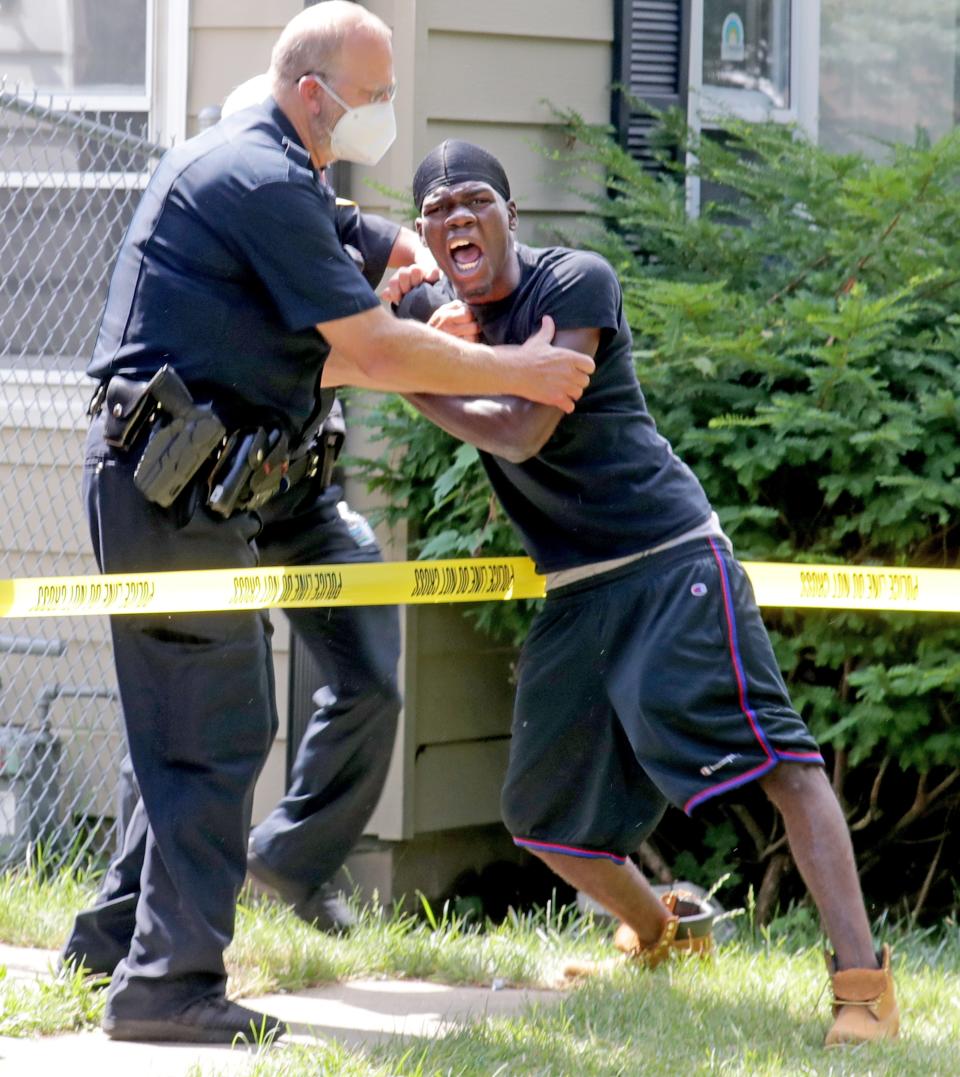
Trump sends in federal agents
President Donald Trump has repeatedly singled out many of those cities, criticizing their Democratic leadership, including Chicago Mayor Lori Lightfoot, for failing to control their streets. In July, the president announced he was dispatching hundreds of federal agents and investigators into Chicago, Kansas City and Albuquerque, among other cities, to assist local police departments as part of Operation LeGend, named for a four-year-old boy who was shot and killed while sleeping at his Kansas City home in June.
"This rampage of violence shocks the conscience of our nation, and we will not stand by and watch it happen. Can’t do that," Trump said last month.
But violence-prevention experts say the president's comments reflect a simplistic approach to a historically complicated problem of violence within Black communities. They say a heavy-handed approach, while politically popular with the president's largely white, suburban base, will likely exacerbate existing conditions as communities recoil against what could be seen as an occupying force.
On Friday, the Justice Department announced the operation was being expanded to Indianapolis, where homicide investigations are up more than 32% in 2020 compared to last year.
Kansas City police announced Thursday they had arrested a 22-year-old man for the death of LeGend Taliferro, the boy whose name has been adopted by Trump's anti-violence task force. The specific role the federal officials played was not disclosed.
Homicides in Kansas City are up 40% compared to this time last year, according to data compiled by the Kansas City Star, with at least 127 reported so far.
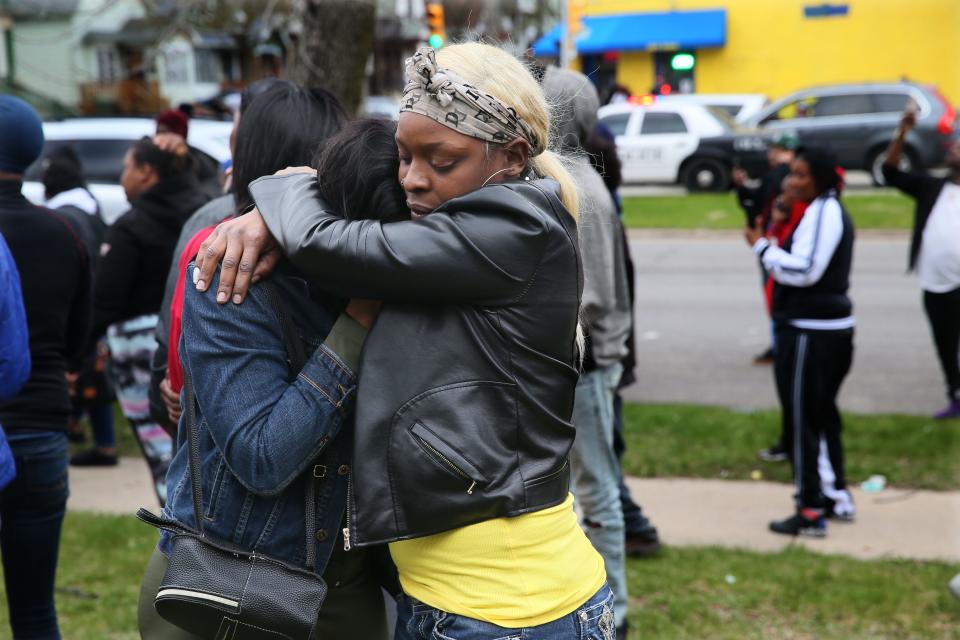
"The arrest and state charges resulted from cooperation among Kansas City police officers, the FBI and U.S. Marshals," Barr said in a statement. "This development is a model for joint efforts to solve crimes and reduce violence in other cities.''
Black leaders oppose heavy-handed policing
Many Black community advocates say sending more law enforcement officers to violence-plagued cities fails to address the underlying drivers of that violence: generations of institutional racism, systemic poverty and the unaddressed consequences of slavery. They argue those factors have created a cauldron of violence that can only be addressed by major, sustained campaigns aimed at changing the way people are educated and how they value the lives of those around them, while also providing alternatives through good jobs and stable housing.
"There's a perfect storm of economic, psychological and health crises in our country, and that's impacting communities that have always borne the brunt of these disparities," says Reggie Moore, the injury and violence prevention director for the Office of Violence Prevention in Milwaukee, where homicides have doubled to 106 as of Friday afternoon, compared to the same time last year. Non-fatal shootings in the same period have risen from 235 to 408 this year, Moore said, citing city statistics.
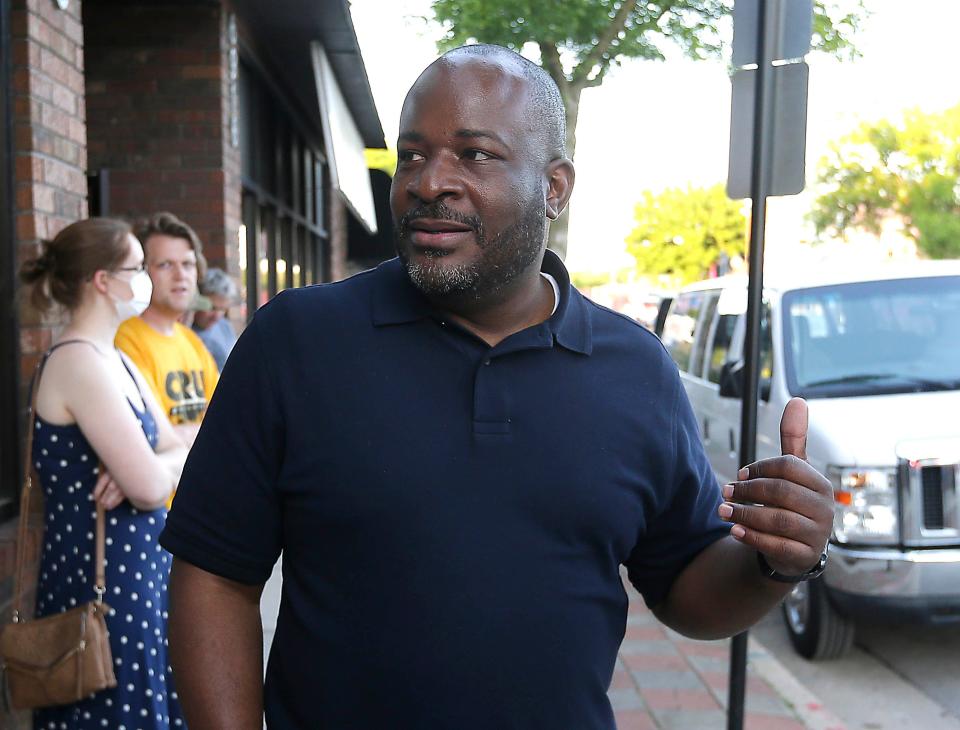
"There's been generations of pain and trauma," Moore says. "When you feel that either everybody in your community has been shot or is shooting, that normalizes violence."
The homicide death of Floyd, 46, a father, security guard and anti-violence activist, prompted an unprecedented national conversation about police reform, particularly the physically aggressive way that some police officers detain Black men suspected of minor crimes. In Floyd's case, a police officer kneeled on Floyd's neck for almost nine minutes after saying Floyd was uncooperative as they investigated a report that he'd passed a counterfeit $20 bill.
Since his death, some cities have adopted plans to "defund the police," which has become a shorthand phrase for redirecting some of the money spent on armed officers into social workers, mental health counseling and other community-focused efforts aimed at social justice.
While Trump has connected the protests and the defund movements to the increase in violence, experts say the trends were already on the upswing before Floyd's death. Public health experts say it's too early to tell if the violence on the streets so far this year reflects a national trend or just an aberration driven in part by the pandemic.
Community activists say the underlying causes of street violence will continue to fester unless properly addressed, and not simply suppressed by an "occupying force of warrior-cops," says longtime police reform activist Nkechi Taifa. She argues that sending armed police officers into Black communities suffering gun violence, while likely to reduce shootings in the short term, causes collateral community damage perpetuating a cycle of mistrust.
Excluding suicides, all gun-related deaths in the country rose from 13,537 in 2015 to 15,112 in 2016 and then 15,679 in 2017 before falling to 14,789 in 2018 and then rising again to 15,208 last year, according to the Gun Violence Archive.
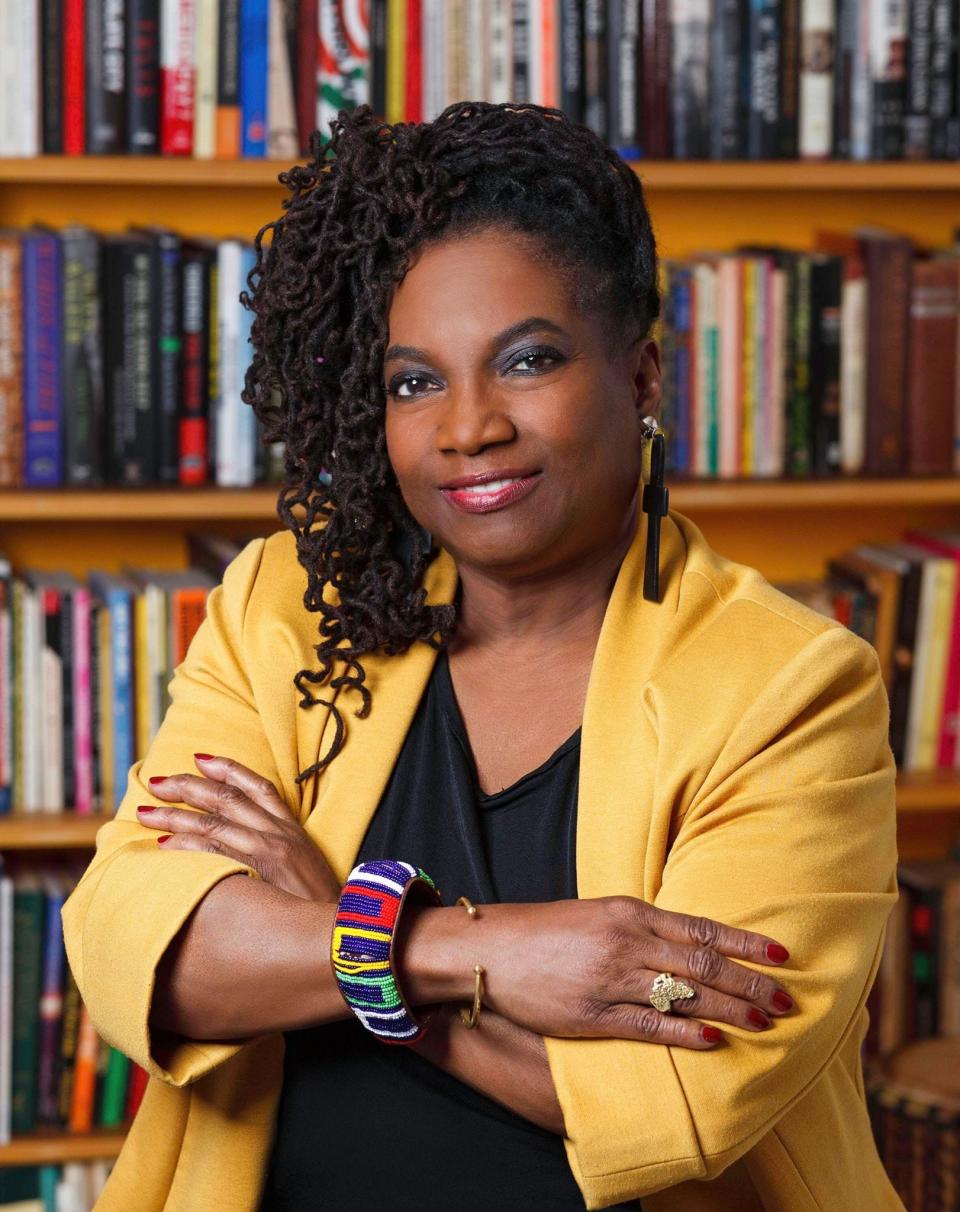
"There's this hopelessness: if you think you're going to die tomorrow, why does it matter what you do today?," says Taifa, 65, a Washington, D.C.-based lobbyist, activist and author of the book "Black Power, Black Lawyer: My Audacious Quest for Justice.” "Many people don't acknowledge the root causes of the crime that's going on in these communities. When there is lack, and there is so much lack in Black communities, it's predictable you will have crime."
Like other activists, Taifa argues that violence-prevention strategies have never been properly funded or given a chance to take root. Although many cities have anti-violence programs, like New York's Save Our Streets or Chicago's Cure Violence, they can be short-lived, poorly funded efforts when compared to the amount of money spent on policing. Taifa's hopeful the "defund the police" movement may finally mean more-than-shoestring funding for these programs.
"We know what has been happening, and we know that it has not worked. We stand at the epicenter of countless systemic failures," she says.
Pandemic halted some violence-prevention work
In Chicago, "violence interrupters" — from city staff to nonprofit workers and neighborhood volunteers — have long been part of the city's strategy to strengthen communities and reduce risk, says Walter Katz, a former public defender and deputy chief of staff for public safety under former Mayor Rahm Emanuel. Katz worked for the city while it was under a 2017 federal consent decree to reduce civil rights abuses by police officers
Katz, who now works for the nonprofit Arnold Ventures foundation on justice issues, says the pandemic has altered how those interrupters work in the community, and he suspects that may be playing a role in Chicago's surge of violence. In the absence of that street-level work, Katz says every part of a community must speak with a united voice to reject violence, and that applies to each individual police officer's actions.
"Each part of the system has to take responsibility," he says. "Policing has to understand that behavior down to the officer level."
Police union leader Joe Gamaldi says police officers on the streets are already struggling with conflicting messages: Many communities want violence reduction but are simultaneously cutting law enforcement budgets.
In Seattle, for instance, police chief Carmen Best announced she's retiring after the City Council cut her department's budget by 14%, including money it had just received to hire a diverse, highly educated corps of new officers. Like Trump, Gamaldi draws a connection between the Black Lives Matter protests and the increasing violence nationally.
"I believe that these protests and these riots are just turning up the volume on the idea that there are no consequences anymore," says Gamaldi, the national vice president for the Fraternal Order of Police and the president of the police union in Houston, where he's also an officer.
Gamaldi, 37, argues that "activist" prosecutors and judges are being too lenient on people caught committing violent crimes. These aren't children making a first mistake, he says, but repeat offenders who know some cities or counties will go easy on them despite what the community actually wants.
Compounding the problem, he says: Many police officers who know they'll be second-guessed for every split-second decision they make are dialing back their efforts so they won't get in trouble.
"You have politicians and police chiefs telling them to back off," he adds. "This increase in crime that we are seeing, you know who are most impacted by this? Black and brown communities. These numbers are people. These are murders. There are thousands and thousands more people who have been killed. And we need to be talking about that. People at some point are going to have to decide what kind of police officers and policing they want."
In an acknowledgment of the racial disparities in policing and prosecution, the Trump administration had taken steps to reduce harsh punishments for federal convicts, and in July 2019released 2,200 inmates under the First Step Act, a 2018 law aimed at softening the longstanding punishments for mostly Black non-violent drug offenders swept up in aggressive prosecutions during the crack epidemic of the 1980s and early 1990s.
More targeting policing could be the solution
Former New York City police deputy inspector and police-reform expert Brandon del Pozo says it's clear most communities want targeted, effective policing. The problem, he says, is that effective community policing takes a lot of resources, even if sending foot patrols through commercial and shopping areas is one way to better connect officers with the communities they serve.
He says increasing the number of detectives assigned to solve crimes is another way to show communities that departments are focused more on specific offenders, rather than stopping and frisking thousands of young men a day in a scattershot approach, a controversial approach long used in New York City. He compared such policies to how medical researchers examine the benefits and drawbacks to treatments, like a potential coronavirus vaccine: Is the cure worse than the disease?
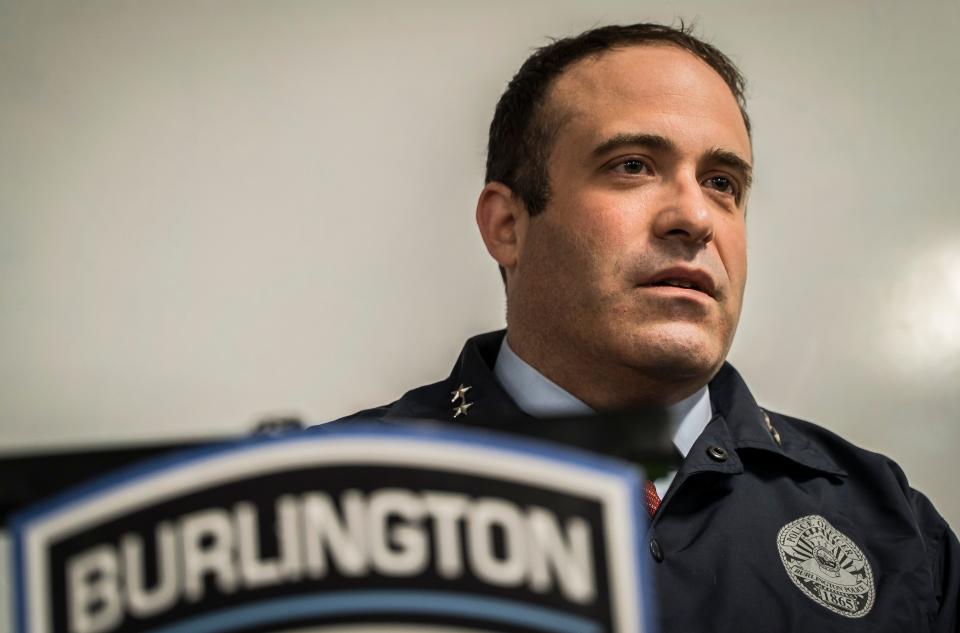
"Police are being given the very clear signal there's little to no room for error in their work, and that their interventions are not what people want," says Del Pozo, 45, whose PhD dissertation focused on the relationship between police and the public in democracies. "The problem is there is no ready substitute."
In Milwaukee, Moore, the 43-year-old activist who spends his days on the streets talking to people in communities with a history of violence,argues targeted enforcement combined with public health-focused outreach can truly make a difference. Milwaukee has developed several anti-violence campaigns, including the "You Matter" program, which aims to help residents feel they have a future worth protecting.
"It's not about the absence of violence. This work has to be about the presence of justice and opportunity. There has to be a paradigm shift toward care," he says. "If the only thing the federal government is deploying is cops or investigators, you're simply banking on having more problems instead of investing in prevention."
Albuquerque anti-violence effort could provide new model
One of the cities singled out by Trump for additional federal officers is Albuquerque. There, city leaders were mystified by his comments about a wave of crime, since statistics show the city is one of the few big American cities not currently suffering a wave of violence.
The city is widely seen as a national leader in its efforts to address longstanding inequities in Black and Hispanic communities, and has launched a new cabinet-level department on par with the police or fire services and intended to address the mental and community health issues activists say must be a key component of any systemic reforms.
Social worker Mariela Ruiz-Angel serves as the coordinator of Albuquerque's new Community Safety Department, which aims to be fully operational within a year.
Under the program, which is an expansion and extension of existing efforts, social workers and other trained workers will be dispatched by the same 911 dispatchers who normally decide whether to send police officers or firefighters to a call.
Over time, Ruiz-Angel says, that will help build trust within communities plagued by violence, so that people who call 911 when a family member is having a mental health crisis will come to trust they'll be treated respectfully, setting the groundwork for better relationships with police responding to violent crime.
"Starting something new allows us to start a new culture, to create a system within a system. We have big problems and we need to think big to find solutions," she said.
Albuquerque police in 2014 agreed to change how they train and deploy officers following several high-profile shootings of people undergoing mental health crises. That agreement came after the federal Department of Justice concluded the department was using an "excessive" amount of force that posed an ongoing risk to city residents.
Back in Philadelphia, Day echoes a similar sentiment: While piecemeal efforts make a difference, real change will only happen when everyone commits. In some cases, that's as simple as neighbors checking in on each other, or hosting virtual hangouts so kids feel someone cares about them.
He urges people to bear in mind that homicide statistics aren't just numbers -- they are mothers and fathers, daughters and sons. Day, who served prison time for armed robbery and spent his youth selling drugs on street corners, says it's possible to push back against the grinding poverty and hopelessness he sees every day.
"We have to teach these brothers and sisters to actually value life," he says. "We can't place it all in the lap of the president or politicians. That has to stir up from within, from our homes. The village has to become a village again. If we all do a little, we can accomplish a lot."
This article originally appeared on USA TODAY: Shootings in Chicago, Denver and across US bring new wave of violence

